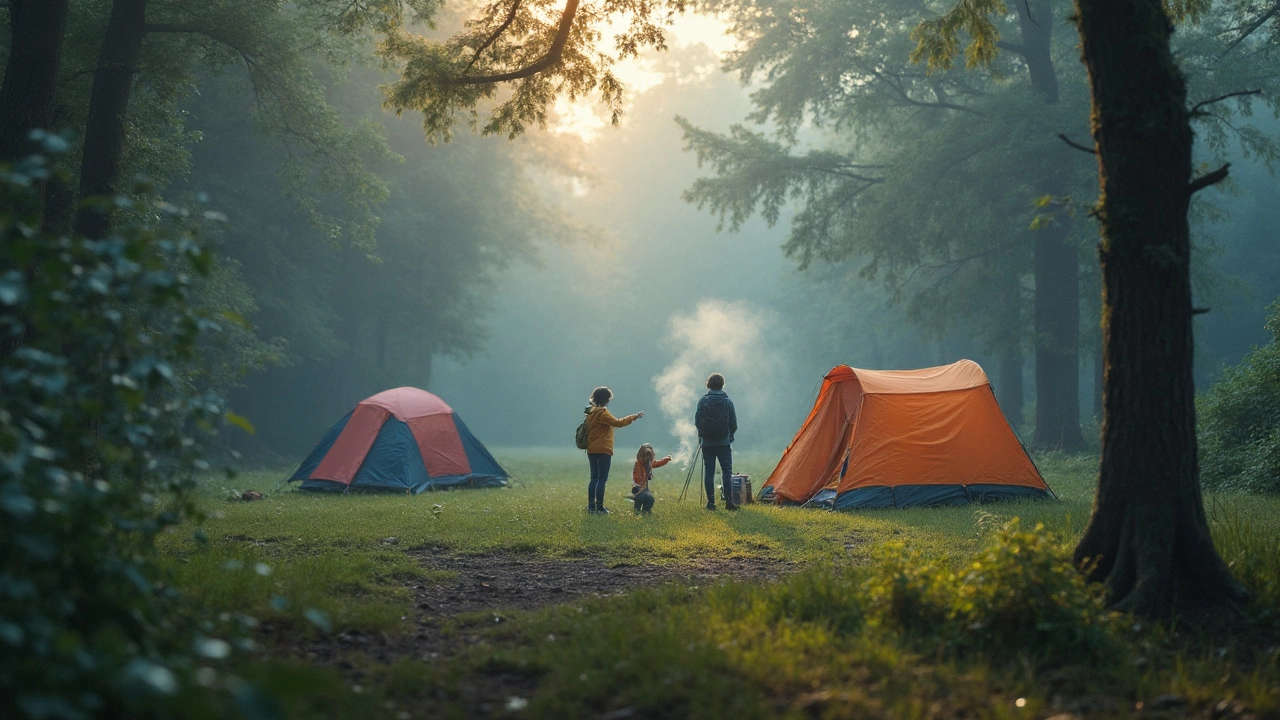Predator Deterrent: Keep Wildlife Safe While You Camp
Camping and motorhome trips are great, but wildlife can turn a fun night into a stressful one if you’re not prepared. The good news? You don’t need expensive gadgets or a superhero cape to keep animals away. Simple steps and a little planning can make your site a no‑go zone for curious predators.
Quick Wins to Deter Common Predators
First, think about what draws animals in. Food, strong smells and easy shelter are the top three. Store all food in airtight containers and keep them in a lockable compartment of your motorhome or a sturdy cooler. Never leave leftovers on the ground – even a tiny crumb can attract a fox or a raccoon.
Next, light it up. Many predators avoid bright, flashing lights. Set up a motion‑sensor LED lamp around your tent or the perimeter of your motorhome. When an animal triggers it, the sudden flash and click startle them, and they usually move on.
Noise works, too. A cheap battery‑powered alarm that sounds a few seconds after motion detection can be a game‑changer. If you prefer a low‑tech option, a wind chime or a hanging tin can make enough clatter to let wildlife know you’re there.
Physical barriers are your next line of defense. A lightweight, collapsible fence made of PVC or metal mesh can keep bigger animals like deer or even a wandering boar at bay. Position it a foot or two away from your tent to block easy access without feeling cramped.
Planning Long‑Term Protection for Your Site
When you’re staying a few nights or longer, think about scent control. Use a scent‑free soap for washing dishes and yourself. Avoid strong perfumes or deodorants that could act as a beacon.
Choose your campsite wisely. Look for sites that already have natural deterrents: steep slopes, open fields, or areas with fewer hiding spots. If the landowner allows, dig a shallow trench around your spot – even a few inches deep can discourage digging animals.
Beyond gear, habits matter. Always clean up after meals, and rinse your cooking gear before storing it. If you’re using a gas stove, let it cool completely before packing it away, as residual heat can attract insects that, in turn, draw birds of prey.
For motorhome owners, make use of the built‑in lockable storage. Keep bedding, clothes and any scented items in sealed bags. If your motorhome has a built‑in awning, close it at night to block any predator from using it as a shelter.
Finally, stay aware of the local wildlife. A quick check with the campsite office or a local ranger can tell you which animals are active in the area and any recent sightings. Knowing whether you’re likely to meet a fox, a badger or a larger predator lets you adjust your deterrent plan on the fly.
In short, predator deterrent is less about expensive tech and more about smart habits, basic gear, and a bit of forethought. With airtight food storage, lights, noise makers, simple fences and clean habits, you’ll enjoy the peace of the outdoors without unwelcome visitors. Stay safe, keep the wildlife wild, and make every campsite and motorhome stop a worry‑free experience.
Does Peeing Around Your Campsite Really Stop Predators?
Loads of campers believe peeing around their tent keeps wildlife away, but does it actually work? This article digs into whether human urine really deters predators at UK campsites, what animals respond to, and how useful (or pointless) this hack might be. We’ll cover what science and expert campers actually say, break down what attracts or repels local critters, and give you tips on genuinely staying safe. You’ll find out if this camping legend is a smart move or better left in the woods.
